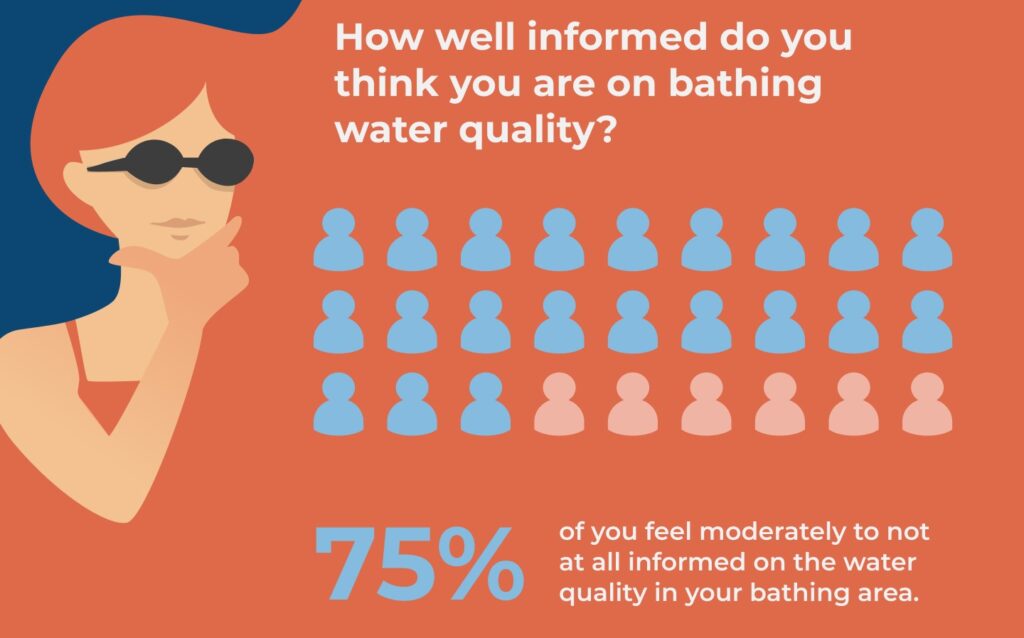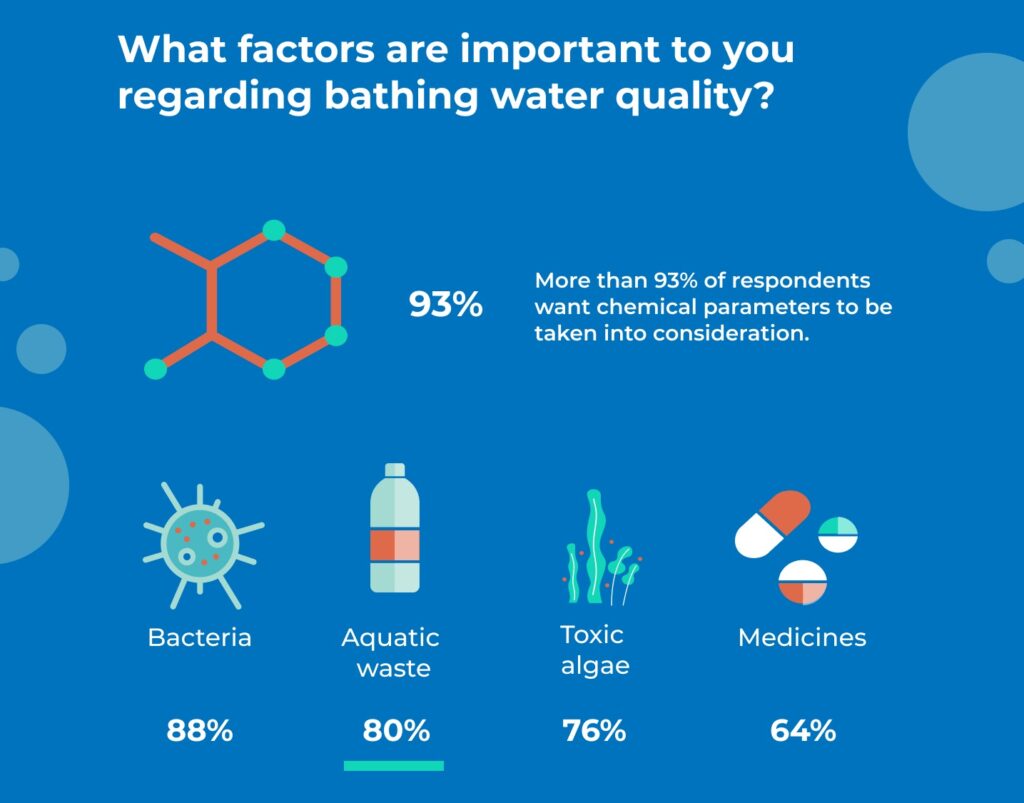For more than twenty years, Surfrider Foundation Europe has been developing expertise on bathing water quality. To safeguard the health of all users, bathers and water sports enthusiasts, the association has been carrying out regular health and environmental monitoring for about fifteen years before focusing solely on areas at high risk of pollution. Today, this knowledge of the field enriches political advocacy work which, with the revision of the directive on the management of bathing water quality, will seek to make the voice of European citizens heard.

What citizens want
Last June, Surfrider Foundation Europe proposed to collect feedback from its community on access to information on water quality at activity sites. The objective of the survey was to consolidate, through a participatory process, Surfrider’s expertise on these public health issues in order to improve their transparency. At the end of a month of consultation, a total of 980 Internet users from 15 different countries expressed their opinions, thus guaranteeing the representativeness of the results obtained.
Of these 980 participants, three quarters said they were “moderately” or “not at all” informed about the quality of the water in which they usually spent time. 84% said they wanted more access to on-site information directly through explanatory panels, and about 60% said they wanted it to be also available on the Internet via computer or smartphone, which is often not the case.

Another interesting result is that, while European regulations require municipalities to check the bacteriological pollution of their bathing waters, 93% of respondents said they wanted to see chemical parameters also taken into account. And for 4 out of 5 participants, the presence of aquatic waste and toxic algae in the water should be equally controlled.

Finally, the vast majority of the 980 citizens who spoke wanted monitoring checks to be carried out and published not only in summer, but both before and after the season as well, that is to say in spring and autumn. Half of the participants thought it preferable to provide access to water quality throughout the year, including in winter.

The participation figures and results obtained will enable Surfrider Europe to strengthen its influence on these subjects, particularly in view of the revision of the European directive currently in force.
The 5 demands made by Surfrider Foundation Europe
Surfrider Foundation Europe lobbies the European Union (EU) and its Member States on a daily basis for better protection of the aquatic environment and its users. In this respect, the revision planned for 2020 of the European directive governing water quality management will be a decisive moment. For the association it means concretizing a whole series of political advocacy work carried out since the last revision in 2006.
As part of an EU expert group working on water quality issues, Surfrider Foundation Europe benefits from greater legitimacy and representativeness thanks to its participation figures. The results of the questionnaire will make it possible, when the review comes, to support Surfrider’s positioning, which will focus in particular on the following 5 main demands:
1. Wider, more accessible and better communicated information for users who are more involved in water quality management issues;
2. An extension of the controlled variables with, in particular, the integration of physical (waste), chemical (hydrocarbons, antibiotic resistance, cosmetics, drugs, etc.) and environmental (toxic algae, jellyfish, cyanobacteria, dangerous fish, etc.) pollution;
3. An extension of the surveillance zones and periods beyond the swimming zones in the pre- and post-season for better awareness of water sports and activities;
4. Anticipating health and environmental risks through investment in research and development of innovative techniques to increase the frequency and speed of analyses;
5. A better knowledge of pollution, the associated health risks and the means of combating them, by improving knowledge of beach topography, prevention and consultation of users and by developing effective action plans to be followed in a crisis situation.

